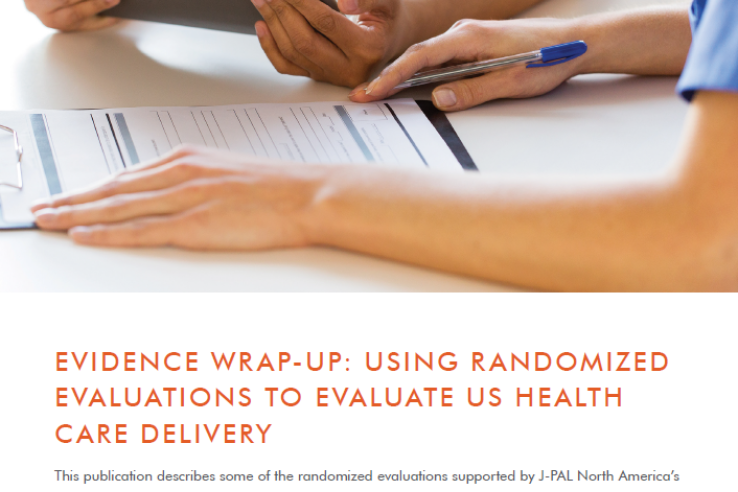Displaying 856 - 870 of 8335
Research Resource
File: Research resource
Research Resource
File: Research resource
Research Resource
File: Research resource
Research Resource
File: Research resource
Research Paper
File: Research paper
This paper is a practical guide (a toolkit) for researchers, students and practitioners wishing to introduce randomization as part of a research design in the field.
Research Paper
File: Research paper
This literature review draws from 160 randomized and natural experiments in low and middle-income countries to distill key lessons on what we know about supporting women’s agency based on quantitative evidence.
Research Resource
File: Research resource
Research Paper
File: Research paper
Policy Publication
File: Policy publication
This publication describes some of the randomized evaluations supported by J-PAL North America’s US Health Care Delivery Initiative (HCDI) to date, as well as evaluations conducted by J-PAL affiliated researchers.
Research Paper
File: Research paper
https://doi.org/10.1257/pandp.20201015
Research Paper
File: Research paper
Research Resource
File: Research resource
Research Paper
File: Research paper
Research Paper
File: Research paper
Research Paper
File: Research paper
